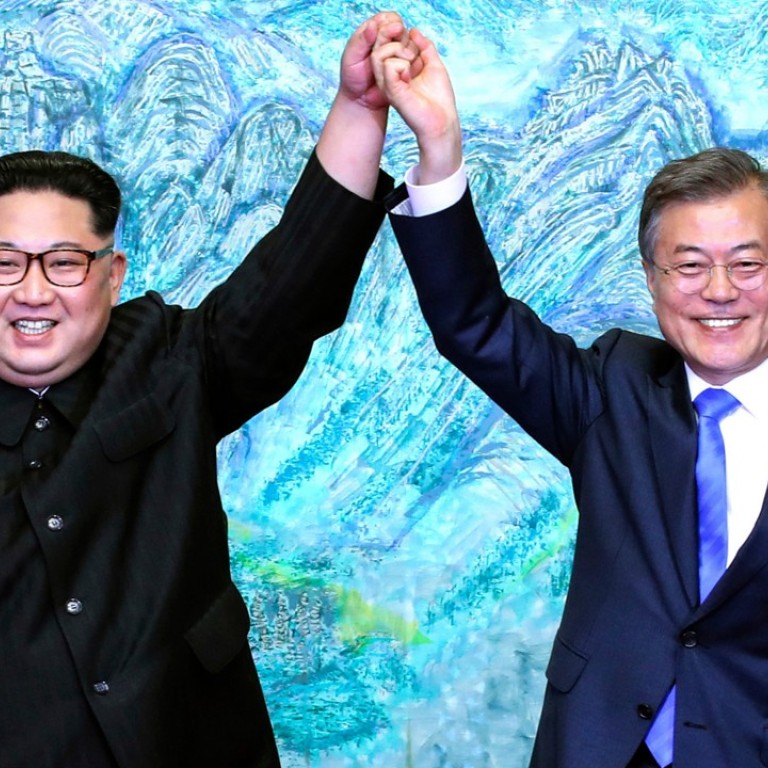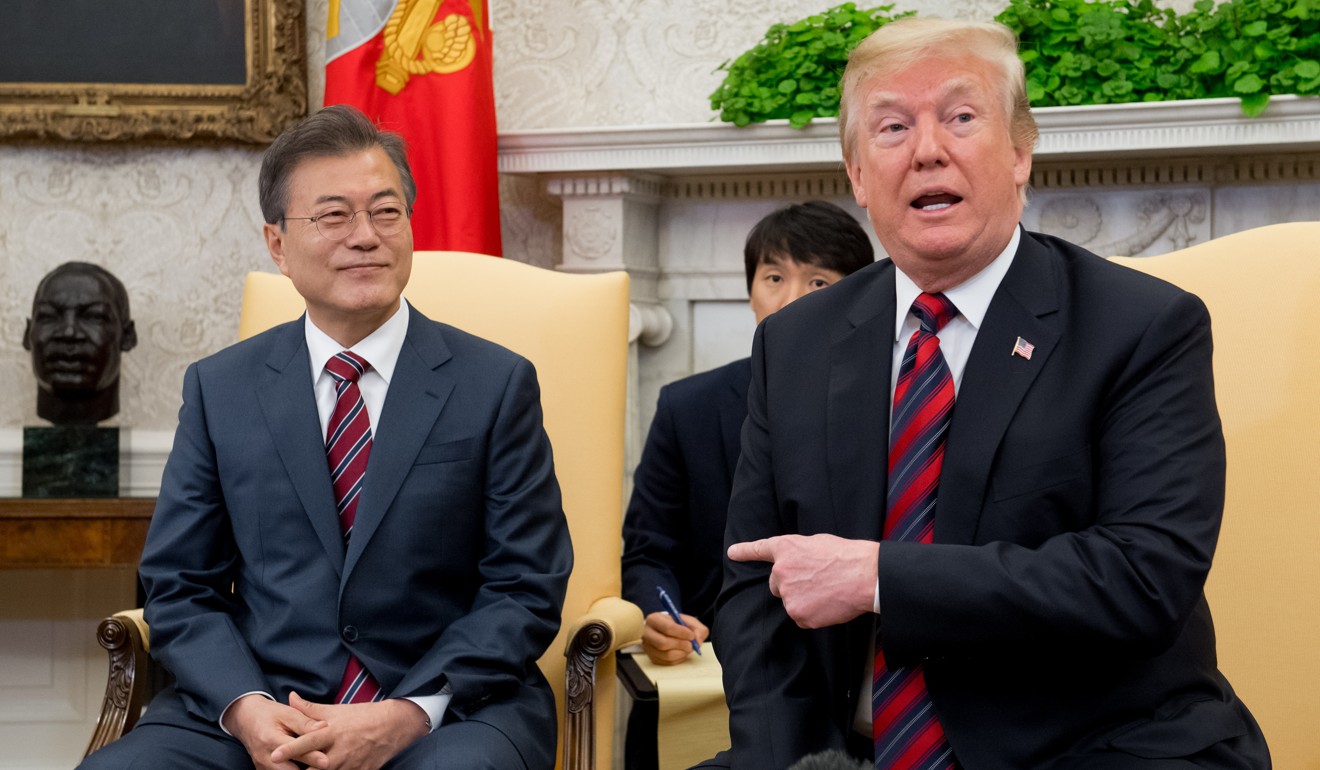
13 more problems for Trump-Kim summit: North Korean defectors
The alleged involvement of South Korean spies in the “defection” of North Korean restaurant workers in China has put a spanner in the works for Pyongyang’s negotiations with the US
In the video, a North Korean man identified as Heo Kang-il, his faced pixelated to protect his identity, makes an admission that has stunned the Korean peninsula.
Heo says he defected from his country, along with 12 young women, while running a North Korean state-owned restaurant in China. What sets his story aside from the many defections over the years is that the women say they didn’t know about the plan, but South Korea’s main spy agency did. And that has seemingly confirmed a long-held suspicion by the North that Seoul has taken an active role in turning its citizens.
If peace is coming, nobody told North Korean defectors
The two sides put a brave face on things last week when South Korean President Moon Jae-in met Kim in an apparent attempt to salvage the summit, pencilled in for June 12 in Singapore, after Trump backed out citing displeasure with hostile statements from Pyongyang. Photographs of Kim and Moon smiling and embracing – and an uncharacteristically calm statement from North Korea in which it asked the US to consider coming back to the negotiating table – appeared to do the trick. Soon after, Trump announced not only that the meeting would go ahead as planned, but that Moon may take part, too.
But behind those smiles, the defections still fester with Pyongyang. This week, North Korea’s official state media called for the defectors to be repatriated, saying settlement of the issue was a “prerequisite” to further progress. And on Saturday, North Korea floated the possibility of suspending talks if the defectors weren’t returned.
“The South Korean authorities should admit the unheard-of atrocity of the Park regime, severely punish those involved in the case, send our women citizens to their families without delay and thus show the will to improve the North-South ties,” said a statement from North Korea’s official news agency.
Hang on, what language is Kim Jong-un speaking?
The South’s Ministry of Unification, the body that handles relations with the North, said the government was reviewing the claims Heo made in the interview.
Complicating matters is that the publicity surrounding the defections has made it hard for either side to let the matter drop quietly. Heo and the 12 women were front-page news when they arrived in South Korea, as it is almost unheard of for North Koreans to defect in large groups.
WATCH: Dramatic video shows North Korean defector’s escape
With Trump to meet Kim, the real Korean games have only just begun
Seoul insisted the defectors carried out the defection on their own, but critics immediately smelled a rat, and alleged that the defection could not have gone ahead without the government’s involvement. The point of the widely publicised exercise, critics said, was to give the administration a boost ahead of some tightly contested local elections.
Making a fuss of the affair could strengthen Pyongyang’s hand in negotiations with Seoul, said Christopher Green, a senior adviser for the Korean peninsula at International Crisis Group.
“The defectors have symbolic value, and the last thing the government would want is to inadvertently encourage other North Korean labourers abroad to try their luck in the South, but we shouldn’t overplay this aspect of the story,” he said.
“It is highly unlikely that the North Korean government is so energised by these 12 young women that they would torpedo the whole diplomatic show over it. Rather, they likely anticipate that by making a demand – repatriation – that the South Korean government is neither willing nor able to fulfil, they can generate negotiating leverage that will help them make gains elsewhere.”
North Korean defector says Park Geun-hye scandal could help Pyongyang
Since the interview, North Korea has played hardball in other areas, dragging its feet in issuing visas for South Korean journalists travelling to North Korea to witness the dismantlement of the country’s main nuclear test site, although the visas were eventually granted.

Why would Kim Jong-un trust Trump now he’s ripped up Iran’s nuclear deal?
Alongside that potential impasse, the next few weeks will also determine if North and South Korea can continue to move towards goals set in the so-called Panmunjom declaration signed in April, which include a promise to negotiate a treaty to replace the truce that has held a fragile peace on the peninsula for the past 60 years.

The precise details of the group defection are likely to remain shrouded for the time being. The waitresses also appeared in the JTBC report, voicing their desire to return to North Korea and reunite with their families. Heo said the intelligence agency hadn’t kept its promise to give him a government job.
Korea summit: euphoria now, but Kim Jong-un’s real test is to come – Donald Trump
Lawyers’ groups have repeatedly asked to independently interview the defectors to verify details of the story, but the government has declined.
The South Korean government is not obliged to facilitate such questioning, according to Patricia Goedde, an associate professor at Sungkyunkwan University School of Law.
“The first principle is to do no harm to these women and to respect their rights and freedom. This should apply equally to states, lawyers and the media,” Goedde said. “This is a highly sensitive, complicated situation that will remain an indefinite sticking point between North and South.” ■

